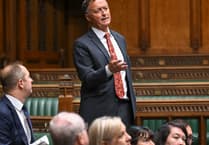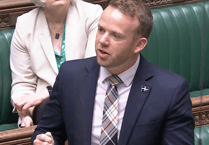ANOTHER Labour party manifesto commitment that I was particularly excited about before the election, and which I’m delighted will soon become law, is to allow 16 and 17 year olds the right to vote in elections.
I have long held the view that if people in this age bracket can get married, get a job, pay tax and join the army, why are they excluded from having the right to decide who governs them? So 16 and 17 year olds will be given the right to vote in all UK elections as part of some pretty seismic changes to modernise UK democracy and deliver on this key manifesto commitment.
However, it’s all very well allowing 16 and 17 year olds the right to vote but how do they access the information they need in order to understand the process and decide who to vote for? We have seen a disturbing disengagement with party politics over recent years and into that void come extremists and people who wish to divide our communities, not heal them. Most of the ‘influencers’ of 16 and 17 year olds come from the unregulated cesspit of social media so, through no fault of their own, young people are exposed to radical views at a far younger age than people of my generation ever were.
In order to try and give our young people a fast start on their political journeys, between now and the next election I will be running a series of apolitical politics workshops across the constituency. The first one, on August 28 at Cornwall College in Camborne, is aimed at 14 to 18 year olds. It will cover things like differences in voting systems, the difference between national and local government, key policy differences and key personalities. I will try to make it as interactive as possible as, from my perspective, I’m keen to learn about the anxieties and aspirations of these young people.
Over a third of all registered voters in Camborne, Redruth and Hayle didn’t vote at the last general election. As part of the voting reforms, the government is going further to make sure all eligible voters are not deterred from voting, by expanding voter ID to permit the use of UK-issued bank cards as an accepted form of ID at the polling station. A new digital Voter Authority Certificate will also be created to ensure Electoral Registration Officers can meet the digital needs of voters, reduce printing costs and ensure faster delivery. An increasingly automated voter registration system will also make it easier for people to register to vote and reduce the need to fill out their details across different government services on multiple occasions.
In addition, major new changes will boost transparency and accountability in politics by closing loopholes that would allow foreign donors via ‘shell companies’ to influence UK political parties. Meanwhile, new requirements on unincorporated associations will mandate checks on donations over £500 to tackle foreign interference and protect UK democracy from those who attempt to undermine it.





Comments
This article has no comments yet. Be the first to leave a comment.